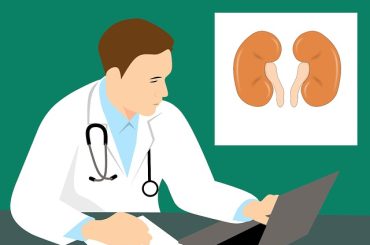Celiac disease is an autoimmune disorder that occurs in genetically predisposed people where the intake of gluten based food leads to damage to the small intestine.
As per medical consensus, 1 in every 100 suffers from Celiac disease. If left undiagnosed, it will lead to long-term health disorders.

How does gluten consumption affect the body?
In case of people, celiac disease, gluten consumption will harm the small finger-like projections called villa in the small intestine. The small intestine absorbs the required nutrients to the body; but when the villa gets damaged, the nutrients cannot be absorbed properly.
This is a hereditary disease. Ensure you have yourself properly diagnosed if anyone in the family has this disease.
Symptoms
Unlike other food allergies, Celiac is different. There are a lot of symptoms which may or may not be the causes of Celiac disease.
Below I will provide all the symptoms, which will help you in the time of need.
- Abdominal pain
- Nausea
- Anemia
- Blistery rash
- Bone density loss
- General fatigue
- Bone or joint pain
- Mouth ulcers
- Weight loss
- Heartburn
- Constipation (in children more often)
- Swelling of the belly (in children)
These symptoms may not necessarily mean Celiac disease, but it’s better to have yourself diagnosed thoroughly to know if it is, in fact, the same one.
Diagnosis
This disease is hard to diagnose due to the similar symptoms that occur in almost all the people with intestinal or stomach problems.
The damage done to the intestine is very slow and hard to detect it in the early stages. Only 20% of the cases have been properly diagnosed with this disease.
Two blood test types to diagnose this disease are:
- Serology
- Genetic testing
If you are diagnosed as a positive for celiac disease, you will need to undergo endoscopy. This procedure enables the doctor to look at the level of damage to your small intestine to decide the treatment.
Treatment
There is no drug perfected to treat this disease yet. You need to go on a gluten-free diet.
Avoid eating any baked goods, beer, pasta, cereals and even some toothpaste. Opt for groceries that are gluten-free, which are very easily available these days. There are also several specific gluten-free restaurants which you can opt for while eating out or celebrate as well.
As a health awareness, various gluten-free restaurants have been seen in many cities to ensure that people suffering from this disease aren’t affected adversely.
In case of severe nutritional deficiency; doctors will prescribe gluten free vitamin and mineral supplements. Depending on the skin rash, medications will be provided.
Long-term disorders
I have mentioned earlier about the long-term disorders if you leave this disease unattended.
Some of the most common long-term adverse effects would be:
- Iron deficiency anaemia
- Osteoporosis
- Infertility or miscarriage
- Lactose intolerance
- Central and peripheral nervous system disorders
- Gall bladder malfunction
- Epileptic seizures, dementia, migraine and many more neurological manifestations.
Conclusion
The health slogan that you need to follow on a daily basis if diagnosed with Celiac disease would be, “gluten-free food is the best food”.
I hope this article and the information provided in it will help you in case of emergencies to rush to a hospital when you see your loved ones or people around you or yourself with these symptoms.





